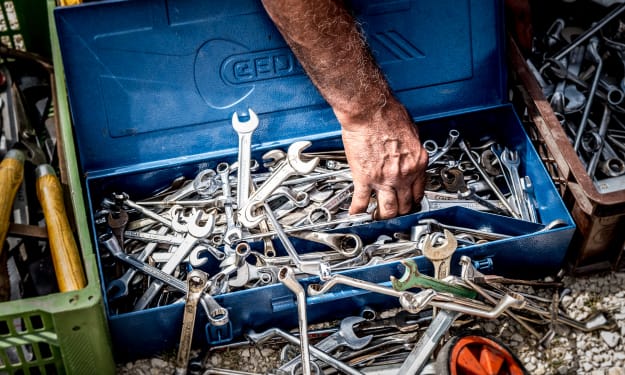The Uniqueness of Moldova: A Land Steeped in History, Wine, and Natural Beauty
Nestled in the northeastern

Nestled in the northeastern corner of the Balkans, the Republic of Moldova, often simply referred to as Moldova, stands as a hidden gem of Eastern Europe. While its smaller size compared to its neighbors might make it seem less prominent, Moldova boasts a surprising wealth of unique features that set it apart.
This essay delves into five distinct aspects that contribute to Moldova's unique character:
A Rich Tapestry of History: Moldova's past is a captivating blend of conquest, cultural exchange, and resilience.
Winemaking Woven into the National Identity: From rolling vineyards to ancient wine cellars, Moldova's connection to wine is deeply embedded in its culture and economy.
Natural Wonders and Untamed Landscapes:** Moldova offers a surprising diversity of landscapes, from lush forests and dramatic canyons to vast steppes and fertile plains.
A Fusion of Ethnicities and Traditions:** A crossroads of cultures, Moldova is home to a vibrant tapestry of ethnicities and customs, enriching its social fabric.
A Country on the Rise: Despite a history of challenges, Moldova's modern era is marked by progress, European aspirations, and a growing tourism industry.
1. A Rich Tapestry of History: Echoes of Empires and Enduring Identity
Moldova's historical journey is a captivating narrative of empires, cultural influences, and the tenacious pursuit of national identity. From the 14th century Moldavian Principality to its incorporation into the Russian Empire and later the Soviet Union, Moldova has witnessed periods of both autonomy and foreign rule.
The Legacy of the Moldavian Principality: Founded in the 14th century, the Moldavian Principality carved out a significant presence in Eastern Europe. The reign of rulers like Stephen the Great solidified Moldova's identity and left behind architectural marvels like the Soroca Fortress and the monasteries of Orheiul Vechi, testaments to a glorious past.
Ottoman Influence and Russian Rule: The 16th century marked a period of Ottoman influence, followed by a gradual shift towards Russian domination. This period brought both cultural exchange and political upheaval. The presence of the Cyrillic alphabet and the Eastern Orthodox Church are enduring legacies of this era.
The Soviet Era and the Birth of Modern Moldova: Moldova became a part of the Soviet Union in 1940. While the Soviet era brought modernization and infrastructure development, it also imposed a centralized system that suppressed national identity. Moldova finally gained independence in 1991, embarking on a journey to forge its own democratic path.
Moldova's historical tapestry is not merely a collection of dates and events. It's a narrative of human struggle, cultural adaptation, and the unwavering pursuit of self-determination.
2. Winemaking Woven into the National Identity: From Vineyards to Cellar Doors
Moldova's connection to wine is profound and deeply integrated into its national identity. Rolling vineyards cloaked in emerald green blanket the central and southern regions, creating a picturesque landscape. Wine production plays a significant role in Moldova's economy and social fabric.
A Legacy Dating Back Centuries: Winemaking in Moldova has a rich history dating back to the 4th century BC. The country boasts a unique grape variety called "Feteasca Neagra," known for its deep color and bold flavor. The underground wine cellars of Milestii Mici, one of the largest in the world, are a testament to the country's dedication to this ancient craft.
Wine Festivals and Culinary Delights: Moldova celebrates its love for wine with vibrant festivals throughout the year. The National Wine Day Festival in October is a joyous celebration of the harvest, featuring wine tastings, traditional music, and cultural performances. Moldovan cuisine is another showcase of this deep connection. Dishes like "Placinta" (savory pastries) and "Sarmale" (stuffed grape leaves) are often paired with local wines, creating a delightful culinary experience.
Beyond its economic significance, winemaking is a cornerstone of Moldovan culture. Sharing a bottle of wine is not just about the drink; it's about fostering community, celebrating traditions, and connecting with the land.
3. Natural Wonders and Untamed Landscapes: A Surprise Awaits
Moldova's natural beauty often comes as a surprise to first-time visitors. The country boasts a surprising diversity of landscapes that cater to various outdoor enthusiasts.
Forests and Dramatic Canyons: The Codrii Hills, the country's largest forested area, offer a haven for nature lovers. Hiking trails weave through dense forests, leading to hidden waterfalls and breathtaking views. The Orheiul Vechi canyons, carved by the Raut River, provide a dramatic backdrop for exploration and historical exploration.
About the Creator
Moharif Yulianto
a freelance writer and thesis preparation in his country, youtube content creator, facebook
Enjoyed the story? Support the Creator.
Subscribe for free to receive all their stories in your feed. You could also pledge your support or give them a one-off tip, letting them know you appreciate their work.






Comments
There are no comments for this story
Be the first to respond and start the conversation.